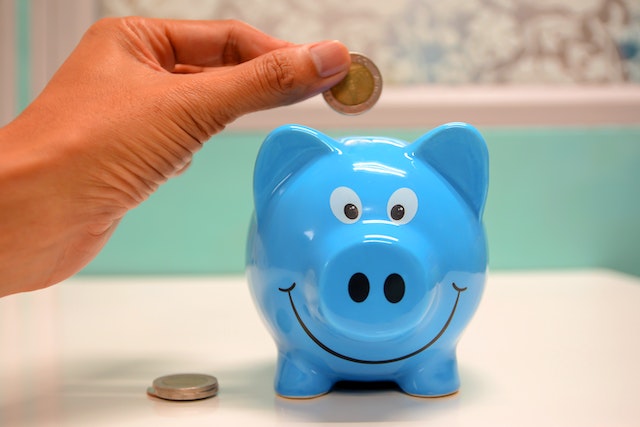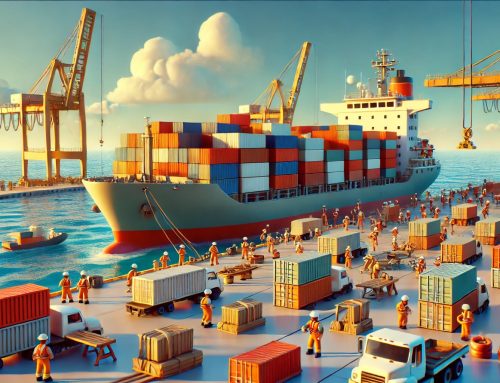Augsut 3, 2023
UNCTAD’s World Investment Report 2023 reveals a widening annual investment deficit that developing countries face as they work to achieve the Sustainable Development Goals (SDGs) by 2030.
The gap is now about $4 trillion per year – up from $2.5 trillion in 2015 when the SDGs were adopted.
The report shows that global foreign direct investment (FDI) fell 12% in 2022 and analyses how investment policy and capital market trends impact investment in the SDGs, particularly in clean energy.
It highlights that developing countries need renewable energy investments of about $1.7 trillion each year but attracted only $544 billion in clean energy FDI in 2022.
Although investments in renewables have nearly tripled since 2015, most of the money has gone to developed countries.
The report calls for urgent support to developing countries to enable them to attract significantly more investment for their transition to clean energy.
It proposes a compact setting out priority actions, ranging from financing mechanisms to investment policies, to ensure sustainable energy for all.
After a strong rebound in 2021, global FDI fell by 12% in 2022 to $1.3 trillion, due mainly to overlapping global crises – the war in Ukraine, high food and energy prices, and soaring public debt.
The decline was felt mostly in developed economies, where FDI fell by 37% to $378 billion. But flows to developing countries grew by 4% – albeit unevenly, with a few large emerging countries attracting most of the investment while flows to the least developed countries declined.
Explore the data in the interactive FDI chart below.
On a positive note, greenfield investment project announcements were up 15% in 2022, growing in most regions and sectors.
Industries struggling with supply chain challenges, including electronics, semiconductors, automotive and machinery, saw a surge in projects, while investment in digital economy sectors slowed.
International investment in renewable energy generation, including solar and wind, also continued to grow – but at a slower 8% than the 50% growth recorded in 2021. Notably, projects announced in battery manufacturing tripled to more than $100 billion in 2022.
The report also notes that major oil companies are gradually selling fossil fuel assets – at a rate of about $15 billion per year – mostly to unlisted private equity firms and smaller operators with lower disclosure requirements.
This calls for new dealmaking models to ensure responsible asset management.
International investment in SDG sectors in developing countries increased in 2022, with project numbers growing in infrastructure, energy, water and sanitation, agrifood systems, health and education.
But the increase since the SDGs were adopted in 2015 is relatively modest due to weak growth in the early years and the sharp decline in investment during the COVID-19 pandemic.
The report shows that, despite the growth, the annual SDG investment gap in developing countries has widened from $2.5 trillion in 2015 to an alarming $4 trillion. The increase stems from both inadequate investment and additional needs.
Developing countries’ energy investment needs, estimated at $2.2 per year – make up more than half the gap. This refers to investment in energy generation, energy efficiency and low-carbon transition technologies and sources. Large gaps also exist for water and transport infrastructure.
The widening SDG investment gap in developing countries stands in contrast to positive trends observed in sustainability investment in global capital markets. The sustainable finance market grew 10% to $5.8 trillion in 2022.
Although renewable energy investments have nearly tripled since the adoption of the Paris Agreement in 2015, most of the money has gone to developed countries.
While developing countries need about $1.7 trillion each year in renewable energy investments – including for power grids, transmission lines and storage – they only attracted about $544 billion in 2022.
The report shows that more than 30 developing countries still haven’t registered a large international investment project in renewables.
And in most of the 10 developing countries with the highest levels of international investment in renewable energy, investment in renewables represents between one tenth and one third of total FDI
The cost of capital is a key barrier to energy investments in developing countries, which are seen as riskier. Partnerships between international investors, the public sector and multilateral financial institutions can greatly reduce the cost of capital.
Bringing in international investors, for example, lowers the spread on debt finance by 8%. Adding multilateral development banks (MDBs) lowers it by 10%. And combining the two with governments in public-private partnerships reduces it by 40%.
Although most developing countries have set targets for transitioning to sustainable energy sources, only one third of them have turned the targets into information on investment requirements.
The report highlights the importance of lowering the cost of capital for clean energy investments in developing countries and supporting them more in their investment planning and project preparation.

The value of the sustainable finance market – which includes bonds, funds and voluntary carbon markets – grew more than 10% to $5.8 trillion in 2022, despite a turbulent economic environment of high inflation, rising interest rates and the looming risk of a recession.
Notably, sustainable bond issuance has grown fivefold over the past five years. The sustainable bond market was worth $3.3 trillion in 2022.
In 2022, the top 100 sovereign wealth and public pension funds monitored by UNCTAD improved their disclosure of climate actions, including investment in sustainable energy and divestment from fossil fuels. Also, two thirds of reporting funds have committed to achieving net zero in their investment portfolios by 2050.
The report highlights that institutional investors, pension funds and sovereign wealth funds are ideally placed to help finance clean energy in developing countries.
But they often lack access to investment opportunities in developing countries because they are prevented from financing non-investment-grade projects.
Also, while sustainable funds outperform their conventional peers on environmental, social and governance criteria, greenwashing remains a challenge. At least a quarter of funds fail to live up to their sustainability credentials.
Enhancing exposure to developing countries and addressing concerns surrounding greenwashing are key priorities for the sustainable finance market.
Investment policymaking activity surged in 2022 as many countries adopted measures to counter an expected economic downturn.
Measures favourable to investment reached 102, nearly doubling from the previous year and regaining their pre-pandemic share of total measures.
Investment facilitation measures featured prominently in developing countries and, for the first time since the pandemic, also in developed nations. They included new initiatives to promote renewable energy and other climate-related investments.
Work to reform the international investment agreement (IIA) regime continued in 2022. This included new types of investment-related agreements, the termination of existing bilateral investment treaties and ongoing multilateral discussions on reforming investor–State dispute settlement mechanisms.
For the third consecutive year, treaty terminations exceeded new IIAs. This brought the IIA universe to 3,265 treaties, of which 2,584 are in force.
But the landscape is still dominated by old-generation IIAs, which are characterized by inconsistencies with the global sustainability imperative and can hinder governments’ policy space to implement measures needed for the energy transition.
This makes reforming the IIA regime even more urgent.
The report proposes a Global Action Compact for Investment in Sustainable Energy for All. It contains a set of guiding principles covering the three objectives of the energy transition – meeting climate goals, providing affordable energy for all and ensuring energy security.
It puts forward six action packages covering national and international investment policymaking; global, regional and South–South partnerships and cooperation; financing mechanisms and tools; and sustainable finance markets.
Source: United Nations Conference on Trade and Development
Legal Notice: The information in this article is intended for information purposes only. It is not intended for professional information purposes specific to a person or an institution. Every institution has different requirements because of its own circumstances even though they bear a resemblance to each other. Consequently, it is your interest to consult on an expert before taking a decision based on information stated in this article and putting into practice. Neither Karen Audit nor related person or institutions are not responsible for any damages or losses that might occur in consequence of the use of the information in this article by private or formal, real or legal person and institutions.






